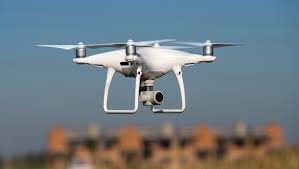The Minister of State for Petroleum Resources (Oil), Heineken Lokpobiri, at the weekend hinted of plans by the Federal Government to deploy new technologies like drones and satellite surveillance to curb the lingering incidents of oil theft in the Niger Delta region.
The minister, who gave this hint in his speech delivered at a gathering of the Oil Producers Trade Section (OPTS), a group of oil companies operating in Nigeria, at the Cross Industry Group (CIG) meeting in Istanbul, Turkey, also charged oil producers in the country to help in boosting the nation’s oil output by over one million barrels per day (1MB/PD) within the next two years to meet the federal government’s target.
While saying that Nigeria is ready to host the headquarters of the $5 billion Africa Energy Bank (AEB), following the country’s successful bid in July 2024, Lokpobiri restated that oil field bid winners must explore the fields or relinquish them for others to explore,
The Special Assistant (Media) to the minister, Nneamaka Okafor, stated that Lokpobiri’s remarks were part of a strategic plan to navigate the challenges in Nigeria’s petroleum industry and explore the opportunities for improved output from the sector,
While underscoring the sector’s critical role in Nigeria’s economy, which provides around 85% of government revenue as well as serves as a vital source of foreign exchange, the minister said there was the need for the oil sector to remain resilient.
According to him, government is making efforts to protect Nigeria’s oil infrastructure through enhanced security measures to frontally tackle the persistent security challenges in the Niger Delta region.
The minister explained that apart from engaging communities and encouraging partnerships to foster local ownership of critical assets, other efforts of the government include increased military support, particularly from the Nigerian Navy and the Joint Task Force (JTF).
He said: “The government has also implemented technology-driven solutions, including drone and satellite surveillance to enhance the security framework and detect potential threats to the industry.
“In the short-term, our focus remains on increasing revenue from crude oil production,” Lokpobiri stated.
“The world is moving toward cleaner energy, and Nigeria must be part of that transition. The government has prioritised natural gas as a cleaner alternative while actively exploring renewable energy options to diversify Nigeria’s energy mix”, the minister added.
Lokpobiri listed some of the reforms and incentives introduced by the government to revitalise the oil and gas sector as the Value Added Tax (VAT) Modification Order 2024 and the Tax Incentives Order for Deep Offshore Oil and Gas Production.
He also informed the attendees that the Nigerian government was focusing on reducing contracting costs and timelines by setting a deadline of six months for each procurement cycle, and highlighted the government’s commitment to the Nigerian Oil and Gas Industry Content Development (NOGICD) Act, which promotes local content.
Lokpobiri projected that the government’s recent initiative to launch bid rounds for 31 oil and gas blocks would be a significant milestone in Nigeria’s strategic development.
He further clarified: “Each block has been meticulously selected for its potential to boost reserves and stimulate economic growth. In line with international best practices, barriers to entry have been reduced through signature bonuses to attract a wider range of investors, with strict enforcement of Nigeria’s ‘drill or drop’ policy.”.
Lokpobiri, who advocated the need for greater commitment from industry players to support Nigeria’s ambitious plan to increase oil production by over 1 million barrels per day within the next two years, stressed that “we cannot afford to hold valuable fields in perpetuity. It’s either you put them to work or relinquish them. The era of renewing licenses without development is over.”






